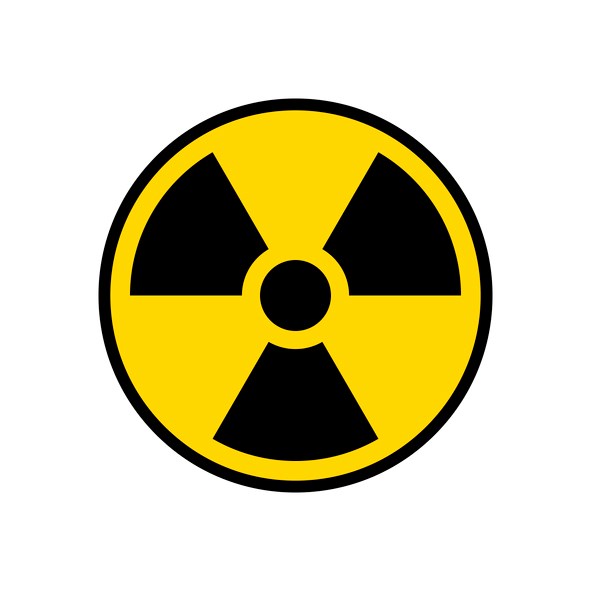
Plastic components are integral to a wide range of industries, from medical devices and automotive parts to electronics and aerospace applications. However, these sectors often expose plastic parts to various forms of radiation, which can significantly impact the performance and longevity of the materials used. For instance, radiation exposure can lead to material degradation, embrittlement, and other detrimental effects that compromise the functionality of plastic components. Fortunately, radiation shielding offers a solution to protect these parts, ensuring they maintain their integrity and continue to perform reliably even in high-radiation environments. Let's delve deeper into the challenges posed by radiation and how effective shielding can mitigate these issues.
The Science Behind Radiation Shielding
For industries like automotive and medical devices, radiation exposure is an operational necessity. It can come in a variety of forms—alpha particles, beta particles, gamma rays, and X-rays—and each type of radiation has different properties and interactions with materials. For plastic components, the most concerning forms are typically gamma rays and X-rays, which have high penetration abilities and can cause significant material degradation.
To protect plastic components from radiation, materials with high atomic numbers (high Z materials) are often incorporated into the polymer matrix. These materials are effective at absorbing and attenuating radiation. Common additives include:
- Lead: Highly effective but toxic and heavy, making it less desirable for many applications.
- Barium Sulfate: Commonly used for its high density and non-toxic nature.
- Tungsten: Offers excellent shielding properties but is expensive and adds significant weight.
- Boron and Boron Compounds: Particularly effective against neutron radiation and often used in combination with other materials.
The injection molding process for radiation-shielded plastics is similar to that for standard plastics, but there are additional considerations to ensure the integrity and effectiveness of the shielding. These considerations include uniform distribution, adjusting the processing temperatures, and mold design.
Benefits of Plastic Radiation Shielding
Enhanced Protection
Plastic radiation shielding effectively mitigates the harmful effects of radiation on sensitive electronic components, medical devices, and other critical applications. By incorporating materials with high atomic numbers or specialized additives, these plastics can absorb and attenuate various types of radiation, such as gamma rays and X-rays, ensuring that components remain functional and reliable.
Lightweight Alternatives
Compared to traditional shielding materials like lead, radiation-shielded plastics are significantly lighter. This reduction in weight makes them ideal for applications where minimizing the overall weight is crucial, such as in aerospace, portable medical devices, and consumer electronics. The lightweight nature of these plastics also simplifies handling and reduces transportation costs.
Versatility in Application
Plastic radiation shielding can be tailored to meet specific requirements through the use of various additives and compounding techniques. This versatility allows manufacturers to design components with varying degrees of shielding effectiveness, depending on the application. Plastics can be molded into complex shapes and sizes, making them suitable for a wide range of applications, including medical shielding and protective enclosures for electronics.
Durability and Corrosion Resistance
Plastic materials used for radiation shielding often exhibit excellent durability and resistance to corrosion. Unlike metals that may degrade over time or require protective coatings, radiation-shielded plastics maintain their properties and structural integrity even in harsh environments. This makes them suitable for long-term use in demanding applications.
Industry Applications of Plastic Radiation Shielding
Plastic radiation shielding is increasingly utilized across various industries due to its effectiveness, versatility, and practical advantages. A few examples include:
- Medical Applications—Plastic radiation shielding is extensively used in the design of protective equipment such as lead-free aprons, thyroid shields, and protective barriers for imaging and radiotherapy. Components in medical imaging devices, such as X-ray machines and CT scanners, also often use radiation-shielded plastics to protect sensitive electronics and maintain accurate imaging results.
- Electronics—Plastic radiation shielding is commonly used in enclosures and housings for electronic devices to protect sensitive components from radiation that could lead to data corruption or functional failure. It’s also essential in semiconductor fabrication, where radiation-shielded plastics are employed in protective equipment and components to shield against radiation used in the manufacturing process.
- Aerospace Applications—Radiation-shielded plastics are crucial in aerospace applications, especially for satellites and spacecraft. They help protect sensitive electronic systems and instruments from cosmic radiation and other high-energy particles encountered in space.
- Automotive—Modern vehicles are equipped with numerous electronic systems, including navigation, infotainment, and safety features. Radiation-shielded plastics help protect these electronics from radiation interference, ensuring consistent performance.
- Plumbing—While not as prominent as medical or aerospace, several plumbing applications benefit from plastic radiation shielding, including water treatment systems, pipe coatings and linings in facilities that use or store radioactive materials, and plumbing components for medical facilities.
Thogus Offers Plastic Components with Plastic Radiation Shielding
At Thogus, our speciality lies in providing injection molding services for high-volume production runs. We have extensive experience working with a variety of industries, including medical, automotive, electronics, consumer products, and plumbing. In order to meet the high demands of our customers, we also offer value added services like plastic radiation shielding.
To learn more about our full capabilities or to get started with a free quote, connect with our team today.
Experience the Thogus Difference
Connect with us today to discuss your project and to learn more about our capabilities.